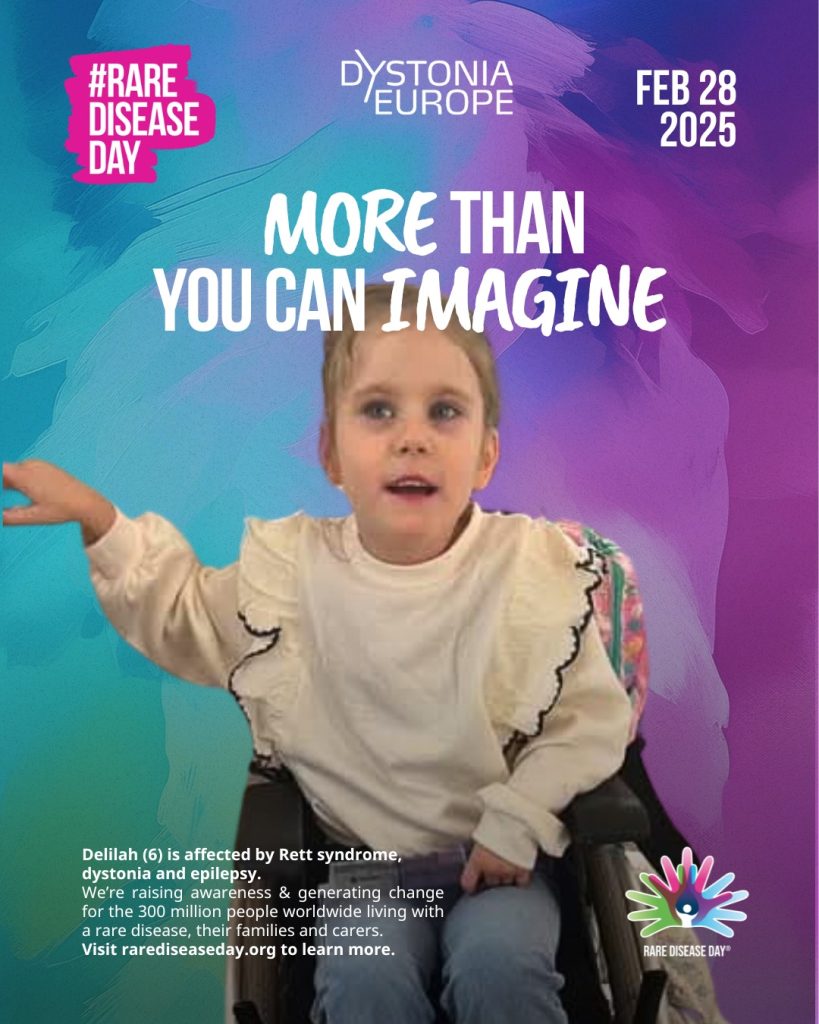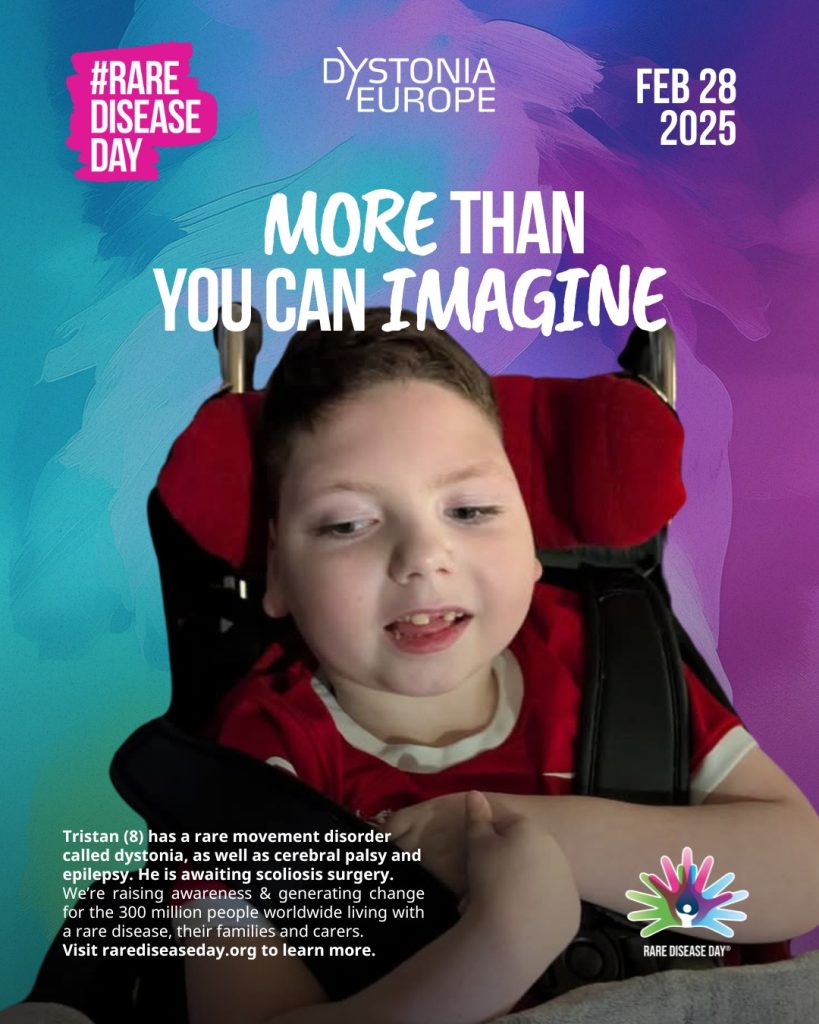Last January we were planning the webinar on Children, Dystonia and DBS. Dystonia Europe was then put in touch with Adrian Hutchings from Childhood Dystonia Awareness UK support group.
We connected and discussed the possibilities of how we can work together to advance the knowledge and understanding of children affected by dystonia. As well as giving support to the parents.
Adrian explained how the group was started:
“We started out as a facebook messenger group of 4 parents from another support group called “UK infantile spasms trust”. We all had children with very complex care needs and multiple diagnosis, dystonia being one that was considered secondary but the one condition we were really struggling with. We found that there was a lack of support for the most complex cases of childhood dystonia so we opened up the messenger group to other parents. This group grew over the course of a year from 4 to 30. Noticing a familiar theme that parents were struggling with, 5 of us decided to form Childhood Dystonia Awareness UK, a support and awareness group specifically for parents and childhood sufferers. This was last June in 2024 and our support group has grown to have over 200 members.”
The aim of the group is to spread awareness of childhood dystonia, work with dystonia charities and charities of other conditions that are part of the children’s complex makeup i.e cerebral palsy and epilepsy. Also to let parents know they are not alone.
One subject that came up within the group was the possibility of offering support to parents across Europe.
From last February, the group decided to take a new leap by opening up to parents and children from UK and Europe and thereby became Childhood Dystonia Awareness UK and Europe.
In the past when Dystonia Europe has been approached by a parent with a child with dystonia we have not been able to refer them to any specific support group. Therefore
the team of Dystonia Europe is very grateful for this new partnership with the aim to support parents with children with dystonia across Europe.
For rare disease day last February we worked to together on a campaign to raise awareness of Children with Dystonia. Parents of the support group submitted photos of their children and shared a short story. This was then posted throughout Rare Disease Day, on 28 February. The campaign was a success and we had at least 10 000 views in just one day.
Thanks again to parents and children who agreed to take part and shared photos and stories.
If you are interested in connecting with the group you find it here: https://www.facebook.com/groups/358181177156588
Monika Benson, Executive Director, Dystonia Europe



